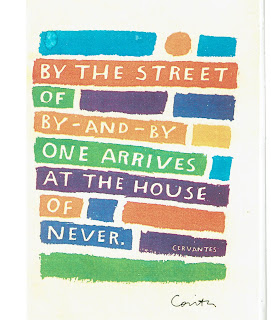Arvid
Lundberg was a political cartoonist with the Chicago Herald, whom I met briefly
in 1937 and then again in 1940 when I was 26 years old and he was 38. Soon
after we started seeing each other exclusively. Arvid was my first romantic
love. We dated for three years and our relationship ended badly. After that, I
never talked about him, not ever.
When friends and acquaintance asked me if I had any serious boyfriends in my younger years, my stock answer was, “I dated around but there was no one special. There were a few possible guys but I always found something wrong with them or they found something wrong with me.” This answer seemed to satisfy and they didn’t ask any follow-up questions.
But curiously over the years my older sister Rose, the family gossip, had dropped hints to her daughters about me dating a cartoonist when I was young. While I was working on this memoir, one of Rose’s daughters asked me innocently enough, “Aunt Claire, what stories are you writing these days? Have any of them been published lately?”
I was always writing stories. Some got published so such questions were a usual part of our conversations. This time my answer was unusual. “These days I’m working on a memoir about my life as a single working girl and the adventures I had. Right now, I’m writing about a guy I dated when I was in my twenties named Arvid Lundberg.”
I expected a few follow-up questions, like “Who was this guy? How long did you two date?” or perhaps just a stunned “Wow, tell me more.” But I was flabbergasted at her response, “Was he the cartoonist who created the Little Lulu comic strip? Mom mentioned this but it was all hush-hush. She said you never talked about it because the guy was older and divorced and worst of all, he wasn’t Jewish and Grandma LeBrint broke the romance up and banished you to California.”
“Oh, your mom, she never was one to keep a secret, but I plan to spill the beans about the cartoonist in my memoir. Who knows if I’ll ever finish it, so for now I’ll give you the cliff notes version. I dated Arvid Lundberg from 1940 to 1943 when I was in my late twenties. He was a political cartoonist with the Chicago Herald newspaper. Years after we broke up, he became known nationally for his syndicated comic strip, not Little Lulu, but your mom was close. His comic strip was about a young girl named Pattie. Comic strips about adventuresome young girls were the rage in the 1940s and 1950s. Besides Pattie and Little Lulu, there were also the Little Debbie, and ‘nancy’ comic strips. Arvid was unmarried, not divorced, older than me and not Jewish. It would have been a shanda if I married him. So, my mother sent me to Los Angeles to get me away from him and that ended that.”
I added, “For the rest of the story, you will have to wait and hope that I complete my memoir, or at least the story of me and Arvid and the banishment” and I changed the subject.**
MY
PURSUIT OF ARVID
1937 – 1940
I met Arvid
Lundberg in 1937 when he gave at talk at my Northwestern University journalism
class. He talked about Chicago and national politics and the impending threat
coming from Hitler and the Nazis in Germany, illustrating his talk with a few
political cartoons that he projected onto a screen at the front of our
classroom. Looking at his provocative cartoons and listening to him, I thought,
Here’s a man with great knowledge of
politics and a wry sense of humor. He’s good looking in a dignified way and I’d
love to get to know him. After his talk, I introduced myself and he said,
“Let’s stay in touch,” or some standard brushoff. I took him at his word and
over the next few years, I was casually persistent, sending him letters
commenting on the cartoons I particularly liked.
Today I’m looking at the Lundberg cartoons I saved, including one titled “Mayor Smelly’s Machine: And His Indispensable Team.” It features a cartoon representation of Chicago’s Mayor Edward Kelly and Cook County Park Chairman Patrick Nash. In the cartoon they are chewing on raw onions while looking at a statue of themselves standing on top of a large block engraved with the words “SOMETHING SMELLS ROTTEN IN CHICAGO.” A few little guys with different skin tones, half as tall as Kelly and Nash, are watching, looking dejected. They represent the Mayor’s constituents, the Blacks, Poles, Mexicans, and other Chicago ethnic minorities who propelled Kelly (and Nash) into power.
During the 1930’s and into the 1940’s, the Kelly-Nash Machine ran Chicago and built the powerful Chicago Democratic party which opened the door for the two Daley mayors (Richard J. and Richard M.) who ruled Chicago with a few interruptions from 1955 until today. Richard M. has a few sons so I expect the Daley dynasty will continue to rule for years into the future. Thinking about the Daley’s’ long reign, in the old-country Jewish manner, I am compelled to say out loud phooey phooey and pretend to spit, to express my extreme displeasure.
Paper clipped to the cartoon is a carbon copy of a typed letter from me to Lundberg, which reads in part, “Smelly is the perfect name for Mayor Kelly. Thanks for shedding a light on the arrogance of Kelly and of Nash who is the power behind the throne. They are gobbling up Chicago’s resources and forgetting about the little guys who put them in power. They smell to high heaven, and I hope they choke on the onions (I mean power) they are gobbling up.”
I figured he wouldn’t remember me from letter to letter, so I reminded him that we met briefly when he gave a talk at my Northwestern journalism class in 1937. As I did in all my letters, I asked if I could talk with him about how to get into journalism. Looking at the letter, I realize how naive I was about Chicago politics. You can throw one set of bums out and another set gets elected. Kelly and Nash out, then the Daley boys in. But in the 1930s how was I to know?
One day in spring 1940, to my surprise and delight, I got a reply from Lundberg. Ma saw the envelope first, and when I got home from work, she handed it to me and asked, “Nu Clara why are you getting a letter from the Chicago Herald?” It was from Lundberg! His last name was handwritten on the envelope above the Herald logo. I may have blushed or had a small secret smile on my face but I kept my composure and answered, “I’m not sure Ma. Now and then I write letters to the paper responding to some article of interest to me.” She seemed satisfied with this answer.
These many years later I can’t find the letter, but I read and reread it many times. I remember it was handwritten and went something like this.
Dear Claire,
Thanks for sending letters now and then. It’s nice to hear from someone who understands what I’m trying to get across in my cartoons. You asked if we might get together so I could give you pointers on how to get into the news business. Sure thing. Give me a call at (phone number, long forgotten) and we’ll find a time to meet.
Sincerely, Arvid Lundberg
Arvid seemed pleased to get my call and asked a few questions: Where I worked. My answer: At my dad’s print shop on LaSalle Street, across from the Chicago Board of Trade. What was my job. My answer: Office work, girl Friday stuff. How did I like the journalism classes, to which I gave a very short answer, “I liked them.” He suggested that we meet after work, downtown. I answered formally, “Yes thank you. I would greatly appreciate meeting you.” Arvid suggested we meet at Eitel’s coffee shop in the Northwestern Train Station just west of the Chicago River on Madison Avenue. The station was across from the Chicago Herald building and not far from Pa’s print shop.
**NOTE: These chapters are from my book now titled "Twists and Turns: An Imagined Memoir based on the life of Claire LeBrint
Metzger 1914 – 2002." Fictional Clara, the narrator, is 80 years old and is writing her memoir in the year 1994. Claire LeBrint Metzger, of blessed memory, is my Aunt Claire and I have been working on stories based on her life for almost 10 years. Finally all the stories are done and compiled in book form! I plan to publish "Twists and Turns" in paperback and Kindle versions sometime in 2024. Until then, I'll post
excerpts from the book monthly on my blog. Enjoy!
To access all the stories I've written and posted on my blog about Claire/Clara, CLICK HERE












